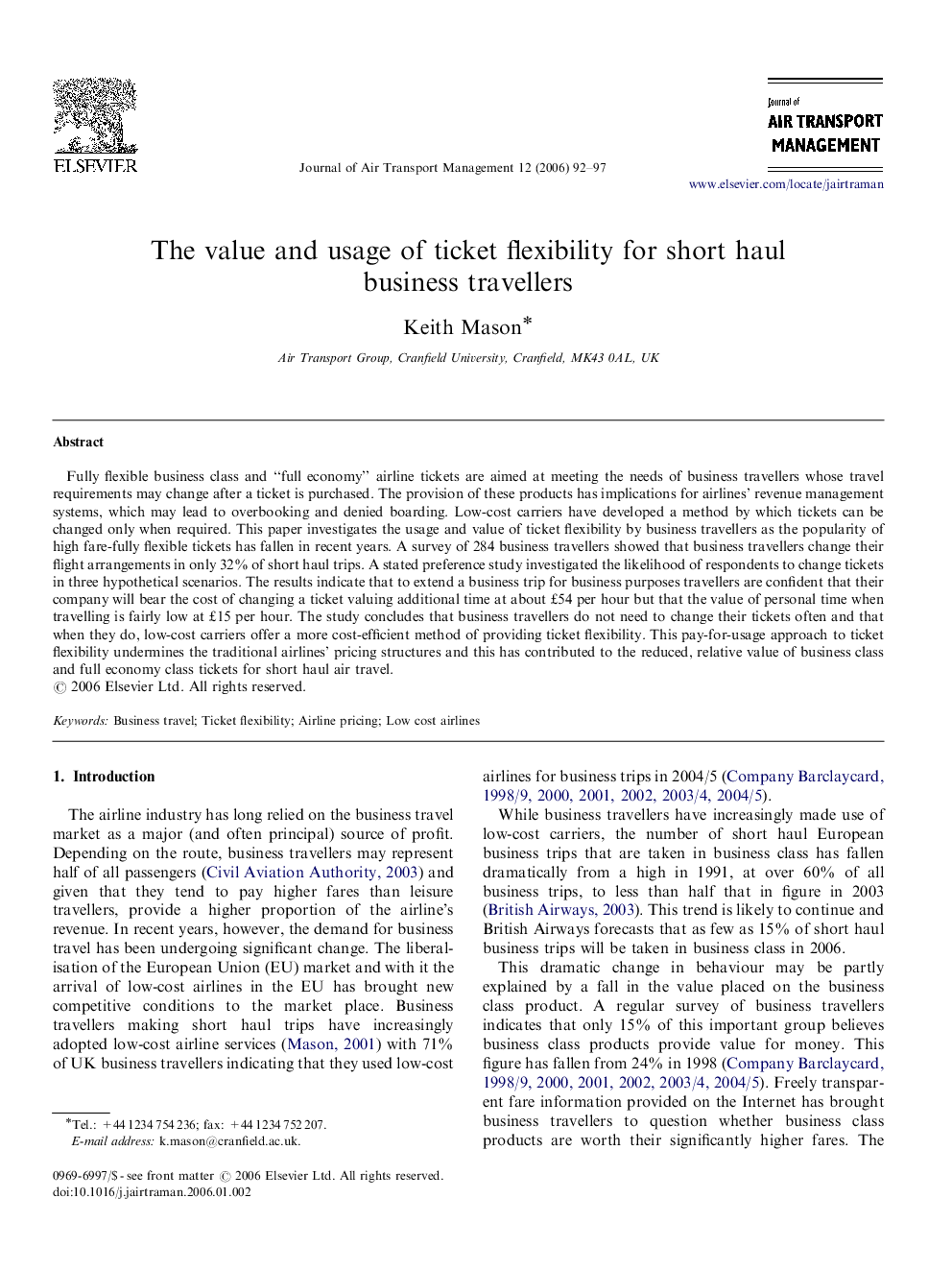| Article ID | Journal | Published Year | Pages | File Type |
|---|---|---|---|---|
| 1031534 | Journal of Air Transport Management | 2006 | 6 Pages |
Fully flexible business class and “full economy” airline tickets are aimed at meeting the needs of business travellers whose travel requirements may change after a ticket is purchased. The provision of these products has implications for airlines’ revenue management systems, which may lead to overbooking and denied boarding. Low-cost carriers have developed a method by which tickets can be changed only when required. This paper investigates the usage and value of ticket flexibility by business travellers as the popularity of high fare-fully flexible tickets has fallen in recent years. A survey of 284 business travellers showed that business travellers change their flight arrangements in only 32% of short haul trips. A stated preference study investigated the likelihood of respondents to change tickets in three hypothetical scenarios. The results indicate that to extend a business trip for business purposes travellers are confident that their company will bear the cost of changing a ticket valuing additional time at about £54 per hour but that the value of personal time when travelling is fairly low at £15 per hour. The study concludes that business travellers do not need to change their tickets often and that when they do, low-cost carriers offer a more cost-efficient method of providing ticket flexibility. This pay-for-usage approach to ticket flexibility undermines the traditional airlines’ pricing structures and this has contributed to the reduced, relative value of business class and full economy class tickets for short haul air travel.
